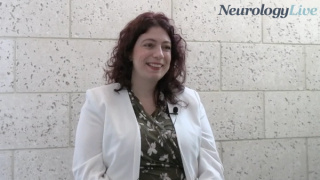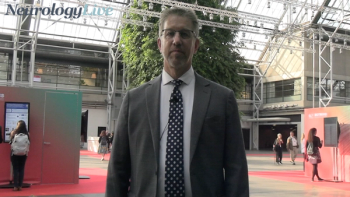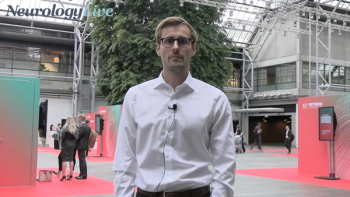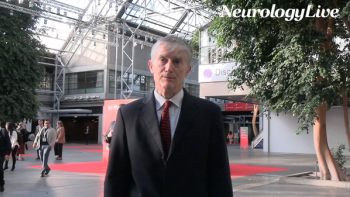
Multiple Sclerosis
Latest News

Latest Videos

CME Content
More News

In the original phase 3 studies, treatment with ozanimod resulted in significant reductions in clinical relapses and lesion counts on MRI as well as slowed brain volume loss relative to intramuscular interferon-β-1a.

A phase 3 trial revealed that simvastatin, while safe, did not significantly slow disability progression in patients with non-active secondary progressive MS.

Take 5 minutes to catch up on NeurologyLive®'s highlights from the week ending September 20, 2024.

In a phase 3 study, tolebrutinib demonstrated a statistically significant delay in time to onset of confirmed disability progression in patients living with non-relapsing secondary progressive multiple sclerosis.

The randomized phase 3 trial will test the hypothesis that the initiation of azathioprine after a first attack of MOGAD could prevent further relapse and disability accrual.

The staff neurologist at the Mellen Center for Multiple Sclerosis at Cleveland Clinic talked about a promising therapy that slows the progression of disability in non-relapsing secondary progressive multiple sclerosis. [WATCH TIME: 2 minutes]

The positive finding on the secondary end point of 6-month confirmed disability worsening supports the data from the phase 3 HERCULES trial in secondary progressive multiple sclerosis.

The neurology resident at the University Hospital Frankfurt in Germany talked about a study presented at ECTRIMS 2024 that analyzed time delays in initiating high-efficacy treatments in patients with multiple sclerosis. [WATCH TIME: 4 minutes]

Nicole M. Boschi, PhD, the director of regulatory affairs at the National MS Society, talked about the impact of the upcoming Medicare Part D and Medicare Advantage changes for the multiple sclerosis community.

The codirector of the Precision Medicine MS Center at Johns Hopkins University discussed the new updates to the MS diagnostic criteria presented at the 40th ECTRIMS Congress in Copenhagen. [WATCH TIME: 5 minutes]

Data from the MAGNIFY-MS study suggest that low 24-month PIRA rates across age groups and among those with or without treatment experience.

The data showed only a small number of infusion-related reactions among patients with MS transitioning from other disease-modifying therapies.

The 2-year study highlighted the potential of cladribine to promote remyelination in highly active relapsing-remitting MS, particularly when early disease control is achieved.

A large-scale study presented at ECTRIMS 2024, conducted by the Alliance for Research in Hispanic MS Consortium, identified ancestry-specific genetic factors that influence the risk of developing multiple sclerosis.

Based on findings from the study, investigators stressed the need for better streamlined access to high-efficacy therapies for pediatric patients with onset multiple sclerosis.

The consultant neurologist at Imperial College Healthcare Trust discussed a proposed concept of smoldering disease in multiple sclerosis that covers progressive symptoms that go beyond traditional focal inflammatory activity.

The consultant neurologist at Imperial College Healthcare Trust discussed how smoldering MS challenges traditional views of disease progression, seeking combined therapies targeting both inflammatory activity and mechanisms driving smoldering-associated worsening. [WATCH TIME: 4 minutes]

Take 5 minutes to catch up on NeurologyLive®'s highlights from the week ending September 13, 2024.

Approved based on the phase 3 OCARINA II trial, the new subcutaneous formulation offers patients with multiple sclerosis more flexibility to choose treatment options that suit their individual needs.

The consultant neurologist at Imperial College Healthcare Trust highlighted the importance of acknowledging smoldering multiple sclerosis, urging a shift in therapeutic focus beyond relapses and advocating for a new approach to disease management. [WATCH TIME: 5 minutes]

The postdoctoral researcher at Amsterdam University Medical Center talked about a tool that helps assess the likelihood of transitioning to secondary progressive multiple sclerosis, allowing clinicians to make informed treatment decisions in a timely manner.

Understanding Smoldering Disease in MS Beyond Focal Inflammatory Activity: Antonio Scalfari, MD, PhD
The consultant neurologist at Imperial College Healthcare Trust talked about how smoldering disease in multiple sclerosis encompasses disease progression independent of relapsing activity, thus broadening the scope beyond traditional measures. [WATCH TIME: 4 minutes]

Take 5 minutes to catch up on NeurologyLive®'s highlights from the week ending September 6, 2024.

MRI scans showed that 99% of fenebrutinib-treated patients were free of T1 gadolinium-enhancing lesions, indicating minimal active inflammation.

Tolebrutinib, a brain-penetrant BTK inhibitor, achieved the primary endpoint in the HERCULES study, significantly reducing disability accumulation in patients with non-relapsing secondary progressive multiple sclerosis.
















